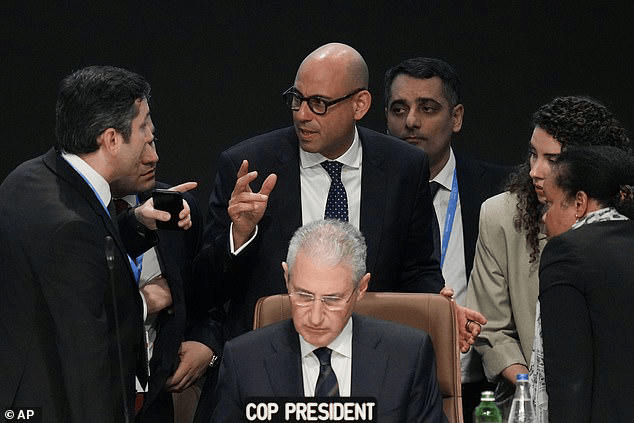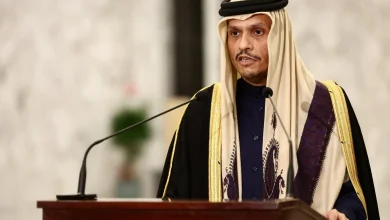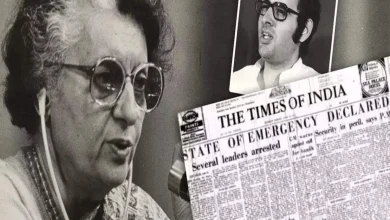
COP29: Controversial Climate Deal Enforced by Host Nation
The 2024 United Nations Climate Change Conference (COP29) in Azerbaijan ended in chaos. The host nation forced through a deal that experts consider one of the most controversial climate agreements in recent years. Azerbaijan broke away from traditional consensus-building protocols and rushed the approval process. This unexpected move created shockwaves throughout the international community. Developed and developing nations found themselves at odds with each other. Azerbaijan’s actions went against the principles of international cooperation and cast doubt on the future of global climate talks. Developing countries and small island states strongly opposed the deal. Their opposition proved futile as the host nation pushed ahead anyway. This power play revealed a troubling imbalance in climate diplomacy and could weaken future efforts to address climate change effectively.
Controversial Deal Making Process
Azerbaijan’s COP29 presidency stunned climate negotiators with an unprecedented move to push through controversial carbon market rules. The host nation claimed a quick win by rushing the approval of key guidelines for carbon credit projects and removal activities. They bypassed the usual scrutiny from negotiators and observer groups.
The Supervisory Body revealed their rushed tactics by adopting guidance as “standards” instead of proposals. This clever move limited other countries’ power to change the contents. Nations faced a stark choice – accept or reject the document that Azerbaijan’s presidency urged them to embrace as part of their “operationalisation” agenda.
Developing nations responded with immediate and strong opposition. Their key reactions painted a clear picture:
- India’s representative called the deal “stage-managed” with “abysmally low” financial commitments
- Nigeria labeled the agreement a “joke” and an “insult”
- Bolivia and Malawi formally rejected the outcome
- Panama’s special envoy described the process as “chaotic and poorly managed”
Diplomatic protocols crumbled during the final negotiations that dragged 33 hours past schedule. The situation grew worse after documents exposed the presidency’s secret sharing of official negotiating texts with Saudi Arabian delegates. They apparently had direct editing access to the content. This revelation, combined with the president’s confrontational opening speech against Western nations, showed how standard diplomatic procedures had been compromised severely.
“This has been the most horrendous climate negotiations in years due to the bad faith of developed countries,” declared Tasneem Essop, executive director of the Climate Action Network, which represents over 1,900 organizations in 130 countries. The controversy reached new heights when the presidency ignored objections and declared consensus without proper debate. Teresa Anderson from ActionAid International dismissed the outcome as “not worth the paper it’s written on.”
Power Dynamics at Play
Money talks dominated COP29 and revealed deep tensions between rich and developing nations about who should pay for climate action. The 1992 Rio Declaration’s “polluter pays principle” puts the burden on countries that caused most historical emissions.
Rich vs developing nation tensions
A huge money gap emerged at the talks. Developing nations asked for AED 4.77 trillion each year in public funds. Rich countries pushed through a much lower amount of AED 1101.64 billion by 2035. This gap showed how angry developing nations felt about facing climate disasters while contributing least to the problem. These nations wanted:
- Public grants instead of loans
- Dedicated funding for loss and damage
- Recognition of historical responsibility
- Protection against further debt burden
Saudi Arabia’s fossil fuel influence
Saudi Arabia became a major roadblock and showed unusual control over the talks. “The Arab group will not accept any text that targets any specific sectors, including fossil fuels,” Saudi delegate Albara Tawfiq declared. This move tried to stop any discussion about moving away from fossil fuels. They blocked reform plans and fought against paying more for climate action, despite their wealth.
Host nation’s conflicting interests
People questioned Azerbaijan’s role as host nation because of its strong ties to fossil fuels. Oil and gas make up over 90% of their exports and two-thirds of government money. This raised doubts about the presidency’s fairness. At least four officials with connections to the state oil company SOCAR held key organizing roles. Many worried about what this meant for fair negotiations.
The summit showed how international climate talks still work under what experts call “old power” patterns. Rich nations keep control through their money power, while developing nations struggle to make their voices count.
Global Response and Reactions
Nations worldwide reacted with unprecedented disagreement to the COP29 climate deal. India led strong opposition against what many called a “betrayal” of developing nations’ interests.
India’s fierce opposition
India’s representative Chandni Raina strongly rejected the agreement and called it “nothing more than an optical illusion.” The nation raised several critical concerns:
- AED 1101.64 billion financial commitment was “abysmally poor”
- Developed nations deflected their responsibility
- Historical accountability remained unaddressed
- Developing nations shouldered a disproportionate burden
Western nations’ justifications
German Foreign Minister Annalena Baerbock tried to defend the agreement. She acknowledged its shortcomings but highlighted the progress made. “Yes, our agreement here tonight is not enough, due to resistance from a few,” she stated on social media. She portrayed the outcome as a victory against those who wanted to “prevent more climate justice.” Western nations claimed the agreed amount was just a starting point for climate finance.
Small island states’ concerns
Small island nations faced existential threats from rising sea levels and expressed deep disappointment. Vanuatu’s envoy Ralph Regenvanu gave a stark warning: “The dollar amounts pledged and the emissions reductions promised are not enough. They were never going to be enough.” Vanuatu responded by planning to lead a case at the International Court of Justice. They sought legal clarity on countries’ obligations to protect vulnerable communities and curb climate change.
The Climate Action Network represents over 1,900 organizations in 130 countries and called this the “most horrendous climate negotiations in years.” Teresa Anderson from ActionAid International criticized the agreement’s dependence on loans. She warned about further debt burden on poor nations. Mohamed Adow, director of Power Shift Africa, captured the mood: “The COP was a disaster for the developing world… The cheque is in the mail. But lives and livelihoods in vulnerable countries are being lost now.”
Future of Climate Negotiations
COP29’s controversial deal has damaged the future of international climate negotiations. Experts warn this could hurt the multilateral process for years to come. The way things played out in Baku showed serious problems in how we negotiate climate action.
Trust deficit implications
Donald Trump’s re-election makes climate commitments less certain. His campaign says the world’s largest historical emitter will leave the Paris Agreement again. “The potential impact of his reelection on multilateralism has instantly become a major focus on the global stage,” noted climate policy experts at the summit. The mix of political changes and COP29’s questionable deals has shaken everyone’s faith in these talks.
Reform proposals for COP process
Climate policy experts say we need these key changes to fix the system:
- Clear rules about how decisions get made
- Better ways to give vulnerable nations a voice
- Strict rules about what host nations can and can’t do
- New frameworks that make financial promises binding
The European Union could help bridge these gaps. Commission President Ursula von der Leyen wants the EU to keep leading these climate talks. “The European Green Deal and the shift towards clean industrial competitiveness must serve as guiding stars,” she emphasized.
Outlook for COP30 in Brazil
Brazil’s COP30 in Belém could help fix these problems. President Lula wants his country to lead on climate action, especially in saving the Amazon rainforest. But Brazil’s climate envoy Ana Toni worries about COP29’s financial decisions. “The money that’s being discussed here is not just for developing countries, it’s for the sake of all of us,” she stated, showing how these talks matter to everyone.
COP30 faces huge challenges. It needs to tackle climate action’s technical side and rebuild trust in working together. Poor countries don’t trust rich ones to keep their promises, and the US might walk away from climate deals. Brazil must somehow get everyone to agree while making real progress on climate goals.
COP29’s controversial outcome represents a vital shift in global climate negotiations. The international community’s approach to climate change shows deep flaws. The hasty deal-making process and Azerbaijan’s questionable handling have created rifts between developed and developing nations. These divisions now put future climate action at risk. Small island states and developing countries bear the heaviest burden from this diplomatic failure. Their needs remain ignored in the final agreement.
The summit has altered the map of climate diplomacy. Brazil’s upcoming COP30 presidency faces more than technical hurdles. They must rebuild trust in multilateral climate negotiations. This challenge grows larger with a possible U.S. exit from climate agreements. Developing nations also doubt wealthy countries’ promises.
Future climate summits need major reforms to work. Transparent decision-making, fair representation, and real financial commitments are essential. The international community risks damaging the cooperative framework needed for meaningful climate action without these changes. COP29’s events remind us that climate solutions need more than technical agreements. They require renewed confidence in the negotiation process.




